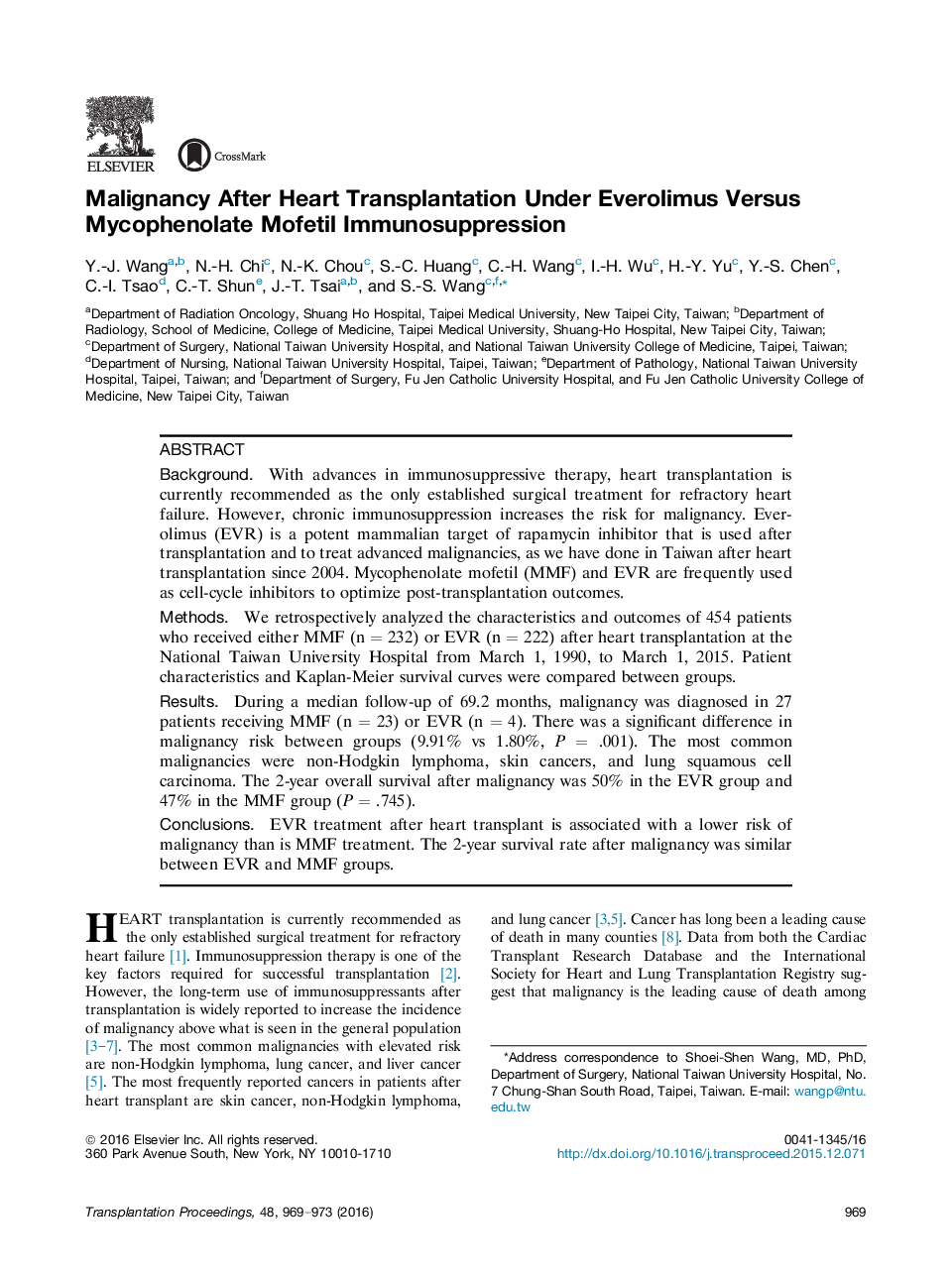| Article ID | Journal | Published Year | Pages | File Type |
|---|---|---|---|---|
| 6246484 | Transplantation Proceedings | 2016 | 5 Pages |
â¢Patients who received everolimus treatment after heart transplantation had a lower risk of malignancy than did those who received mycophenolate mofetil treatment.â¢The most common malignancies after heart transplantation were non-Hodgkin lymphoma, skin cancers, and lung squamous cell carcinoma.â¢The 2-year survival rate after malignancy was similar between everolimus and mycophenolate mofetil groups.
BackgroundWith advances in immunosuppressive therapy, heart transplantation is currently recommended as the only established surgical treatment for refractory heart failure. However, chronic immunosuppression increases the risk for malignancy. Everolimus (EVR) is a potent mammalian target of rapamycin inhibitor that is used after transplantation and to treat advanced malignancies, as we have done in Taiwan after heart transplantation since 2004. Mycophenolate mofetil (MMF) and EVR are frequently used as cell-cycle inhibitors to optimize post-transplantation outcomes.MethodsWe retrospectively analyzed the characteristics and outcomes of 454 patients who received either MMF (n = 232) or EVR (n = 222) after heart transplantation at the National Taiwan University Hospital from March 1, 1990, to March 1, 2015. Patient characteristics and Kaplan-Meier survival curves were compared between groups.ResultsDuring a median follow-up of 69.2 months, malignancy was diagnosed in 27 patients receiving MMF (n = 23) or EVR (n = 4). There was a significant difference in malignancy risk between groups (9.91% vs 1.80%, P = .001). The most common malignancies were non-Hodgkin lymphoma, skin cancers, and lung squamous cell carcinoma. The 2-year overall survival after malignancy was 50% in the EVR group and 47% in the MMF group (P = .745).ConclusionsEVR treatment after heart transplant is associated with a lower risk of malignancy than is MMF treatment. The 2-year survival rate after malignancy was similar between EVR and MMF groups.
